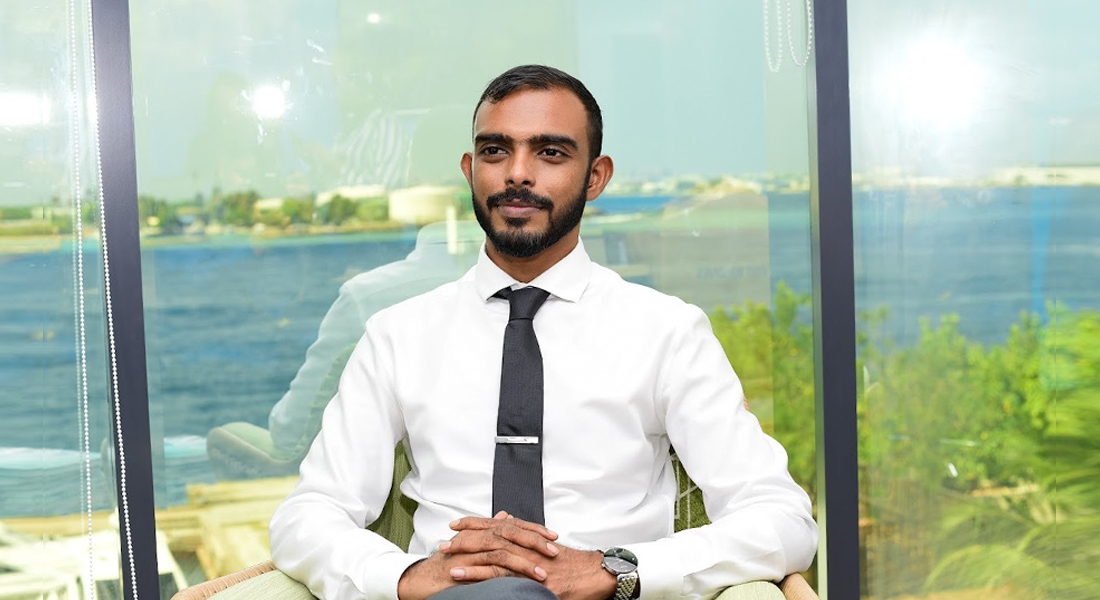
10 Mar Interview with Zihuny Rasheed, Deputy Managing Director, Maldives Marketing and PR Corporation (MMPRC)
How can the Maldives strike a balance between its tourism industry and the need to conserve the fragile environments and ecosystems on which it is based?
We’ve managed to break a few records even in the first two months of 2024, which is a continuation of our recent trajectory and is testament to how tourism has grown to be one of the key industries in the Maldives. President Dr. Mohamed Muizzu’s new government has put great emphasis on tourism. The Maldives is a unique island nation with a singular and very fragile ecosystem. As such, sustainability is at the core of everything that we do and has been since our inception. Over the last 50 years we’ve been working to ensure that future generations benefit both from our work and from the natural beauty of our country.
How is your organization leveraging digital technologies to market the Maldives as a destination and what initiatives are showing the best results?
Visit Maldives is ushering in a new era in which we focus more on data-driven marketing to ensure that the benefits of tourism are felt across all sections of our society and our economy. Digital transformation has a key role to play in this, and we want to harness both technology and tradition to tell stories that captivate and inspire.
The Maldives is a low-lying island nation that includes different peoples, cultures, and geographies. The Covid-19 Pandemic made us realize the importance of modern digital storytelling. MMPRC wants to give storytellers a platform to showcase what makes the Maldives truly unique, including our hospitality, culture, history and traditions, which set us apart from other island nations.
How are you applying artificial intelligence (AI) into your operations, and how can it help you reach your data-driven marketing goals?
AI is of particular importance in the Maldives because we have a fairly advanced economy but a very small population, which leads to a shortage of skilled labor. AI gives us the opportunity to overcome this challenge and push through projects by quickly and inexpensively filling gaps in our capacities, especially when it comes to marketing some of the more remote, difficult-to-reach islands. So AI is a very promising, powerful way for us to promote our country and our tourism offerings.
We have had discussions with Mastercard about how best to apply technology efficiently and sustainably. We have implemented data driven marketing and are applying ethical AI to implement international marketing campaigns, both business-to-business (B2B) and business-to-customer (B2C). This includes the use of billboards, events, and exhibitions. In all of these, we can use AI, augmented reality, and other cutting-edge technology to promote our country and make it more accessible to travelers and investors all over the world.
What role does new media have to play in the Maldives’ future marketing plans?
The government has emphasized the imortance of creative mediums that will allow Maldiveans to share their stories about our unique country and forge an emotional connection with the world. We are working on this now and it should be ready within a few months.
The Maldives is known as a luxury destination. However, the government’s diversification plan gives us a chance to branch into different types of tourism, including the sort of independent, less-high-end tourism that might be generated by social media engagement. We have traditionally been marked as a sun-and-sand destination, but we have much more to offer than that, and we will see far more offerings becoming available over the coming years.
How would you describe the Visit Maldives campaign and what flagship projects might help the branding and marketing of the country?
The government has announced its ambition to become a leader in sustainable tourism. In the last two months there has been a notable shift in thinking towards sustainable practices that will benefit the Maldives and its people and ensure that the benefits of tourism are felt throughout the community. Most importantly, there is an emphasis on preserving and protecting our nature and its ecosystems. To increase visitor numbers, we are increasingly looking at emerging markets. Our traditional markets are in Europe, but we want to expand this to include more diverse countries from other parts of the world. We also want to provide a greater variety of offerings and accommodation options to cater to a wider customer base.
What opportunities are there in the Maldives for US investors, and where do you see the most potential for growth?
The Maldives have investors from all around the globe, including US companies. Investors know that it is a well-managed country with a sustainable mindset, where they can make a full return on their investments within five to seven years. We encourage people to come and show their support for our unique destination and see how sustainable our society is.
What are your final messages to the readers of USA Today?
The government is encouraging investors to come and is ready to listen to their questions and concerns and make any necessary adjustments. I think this is a really exciting time to be involved in this industry, and we will see a lot of growth over the next five years.
